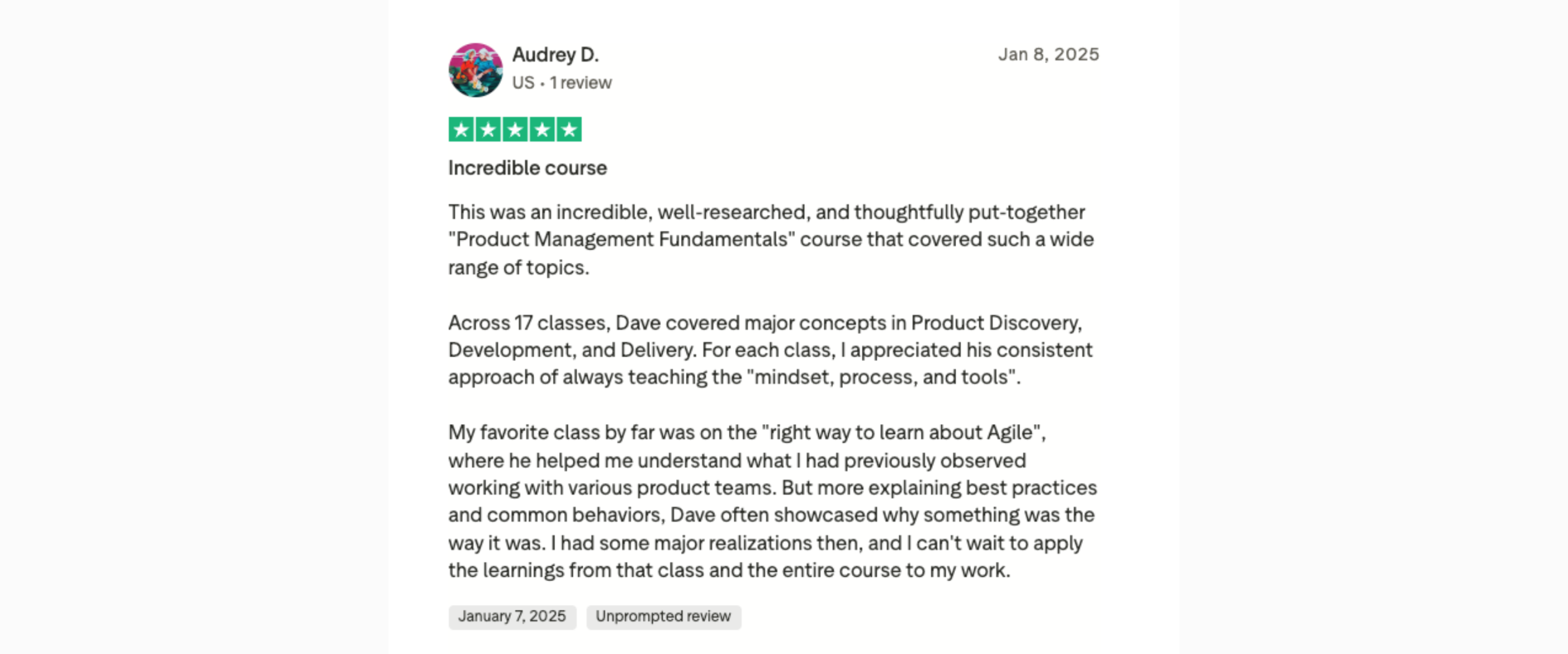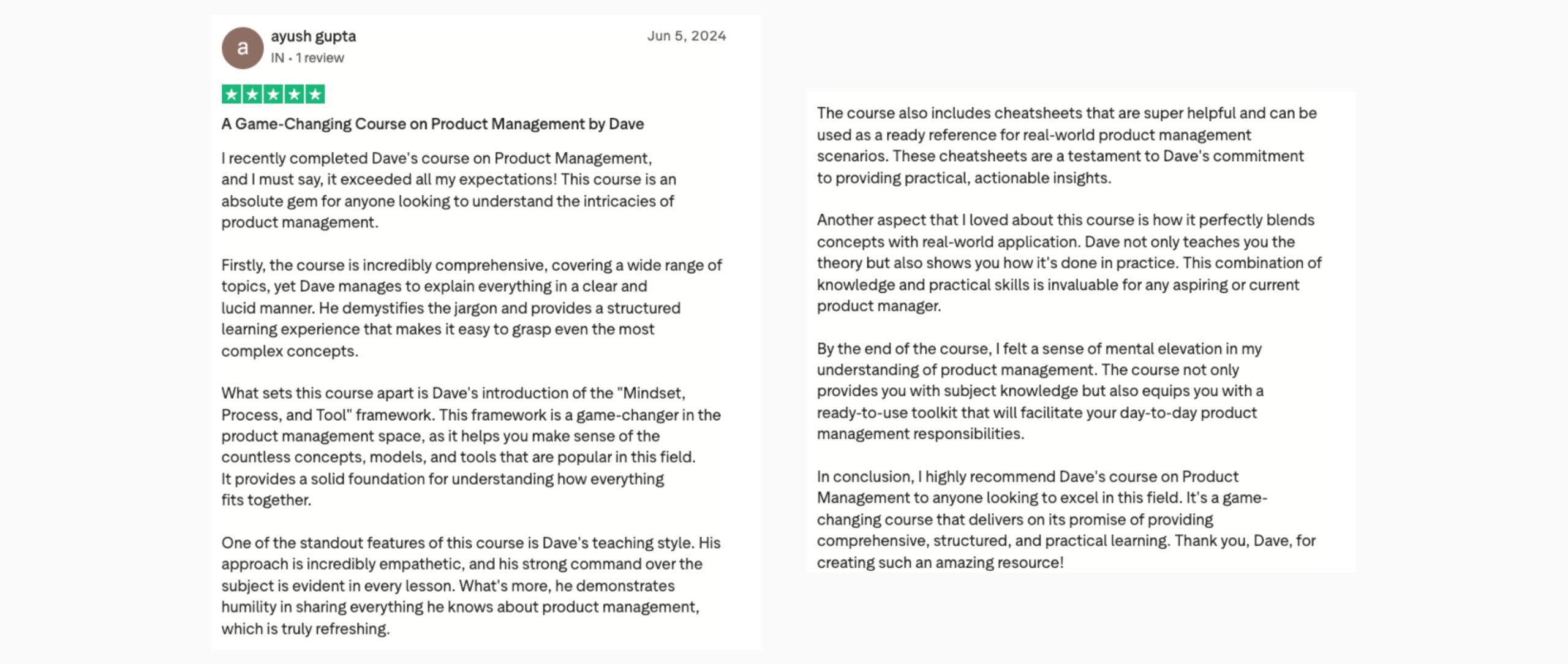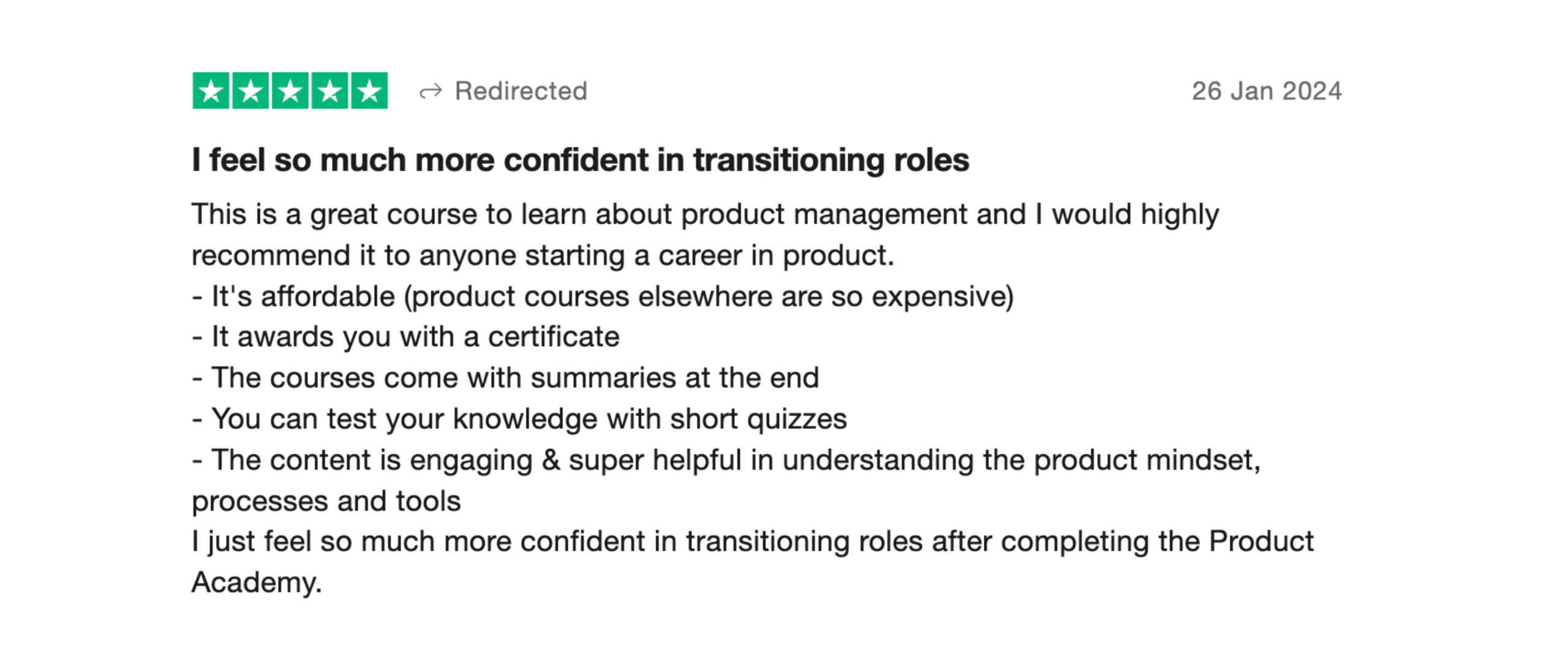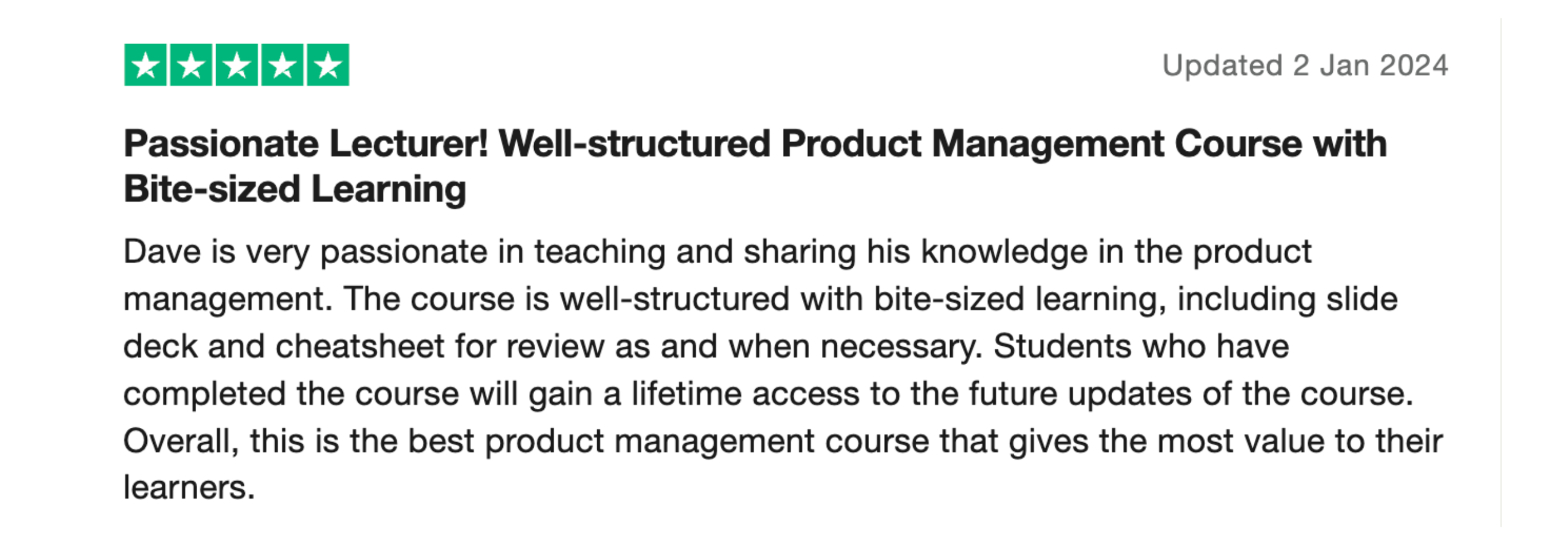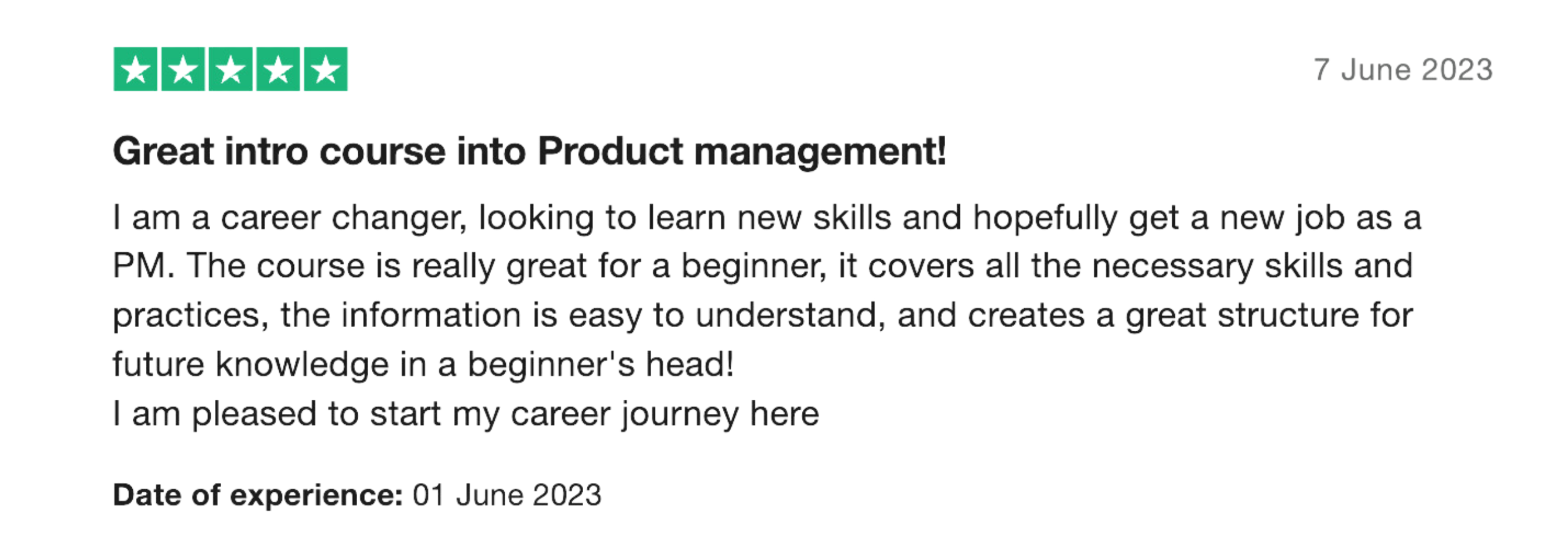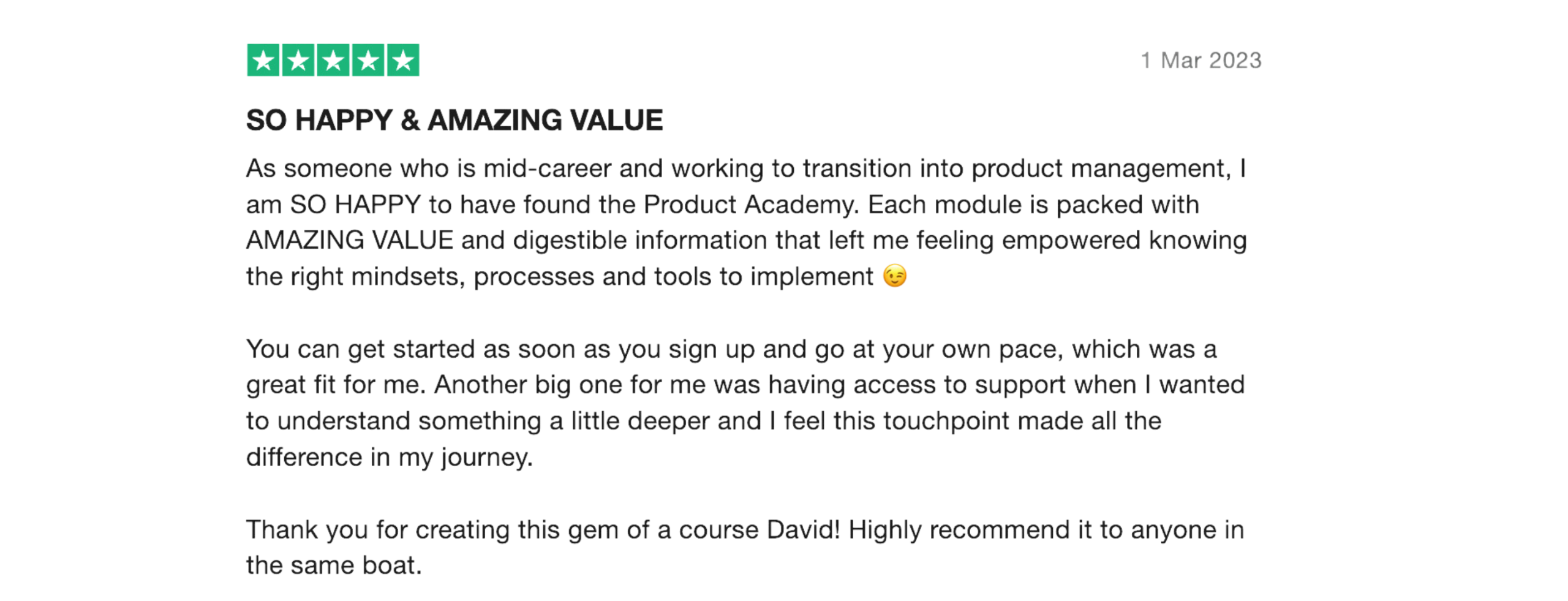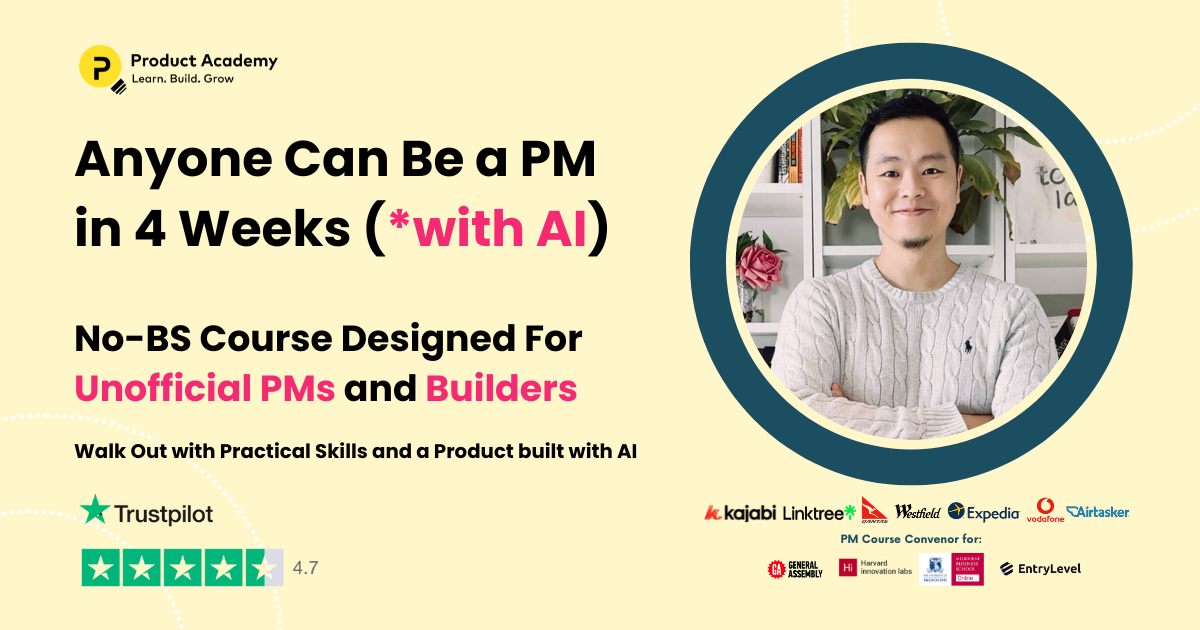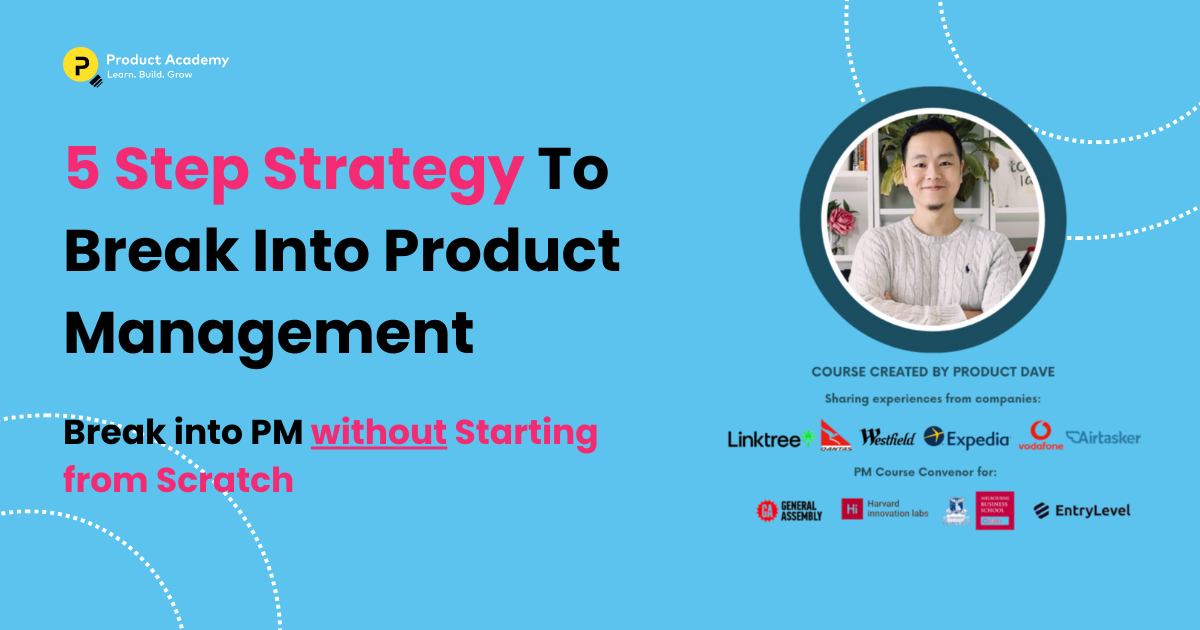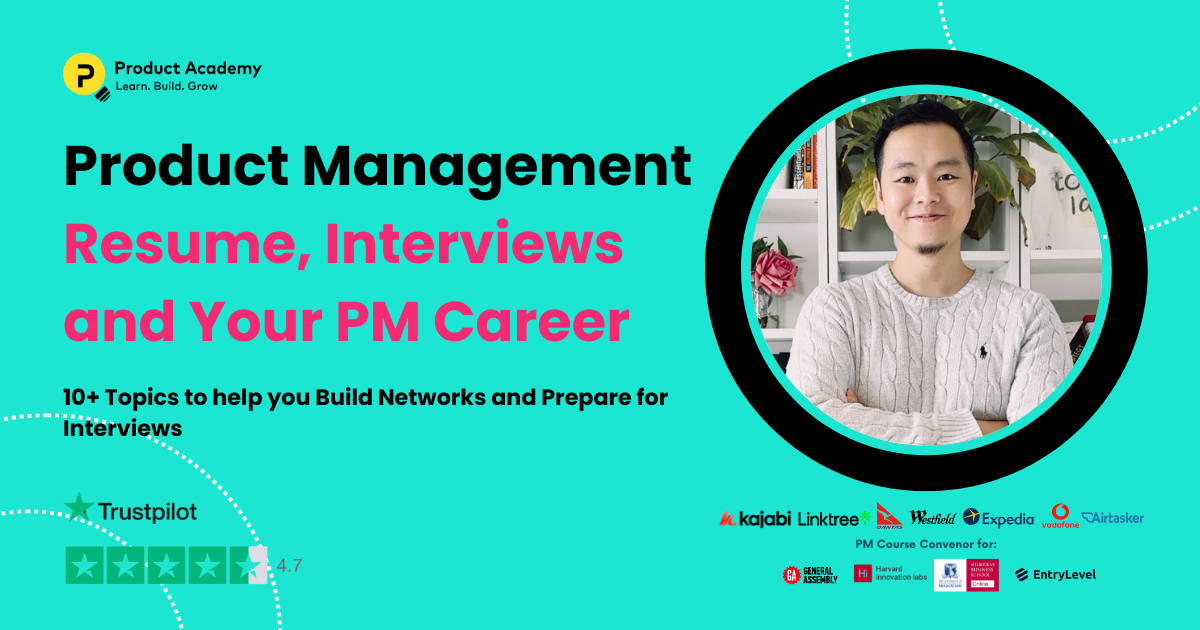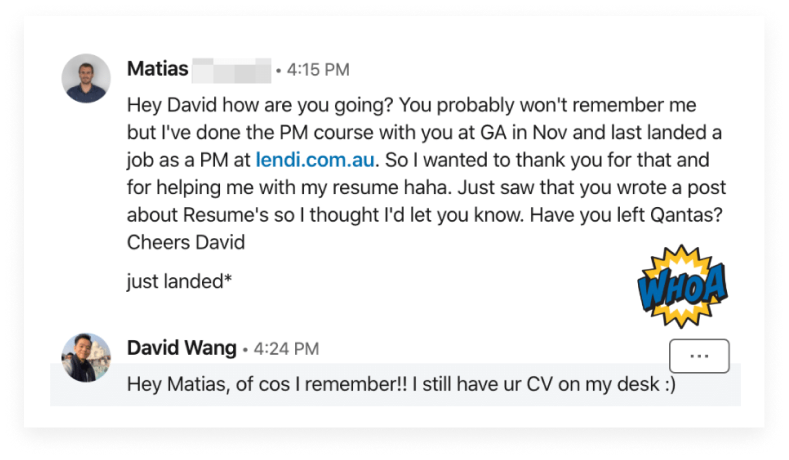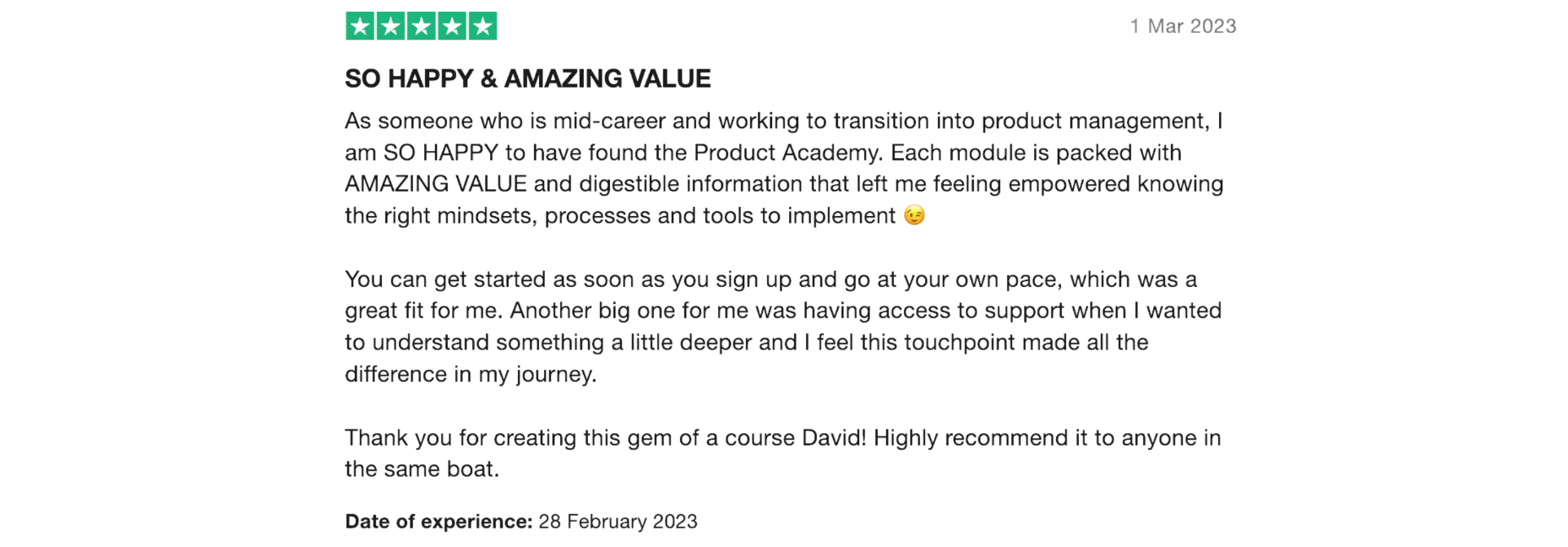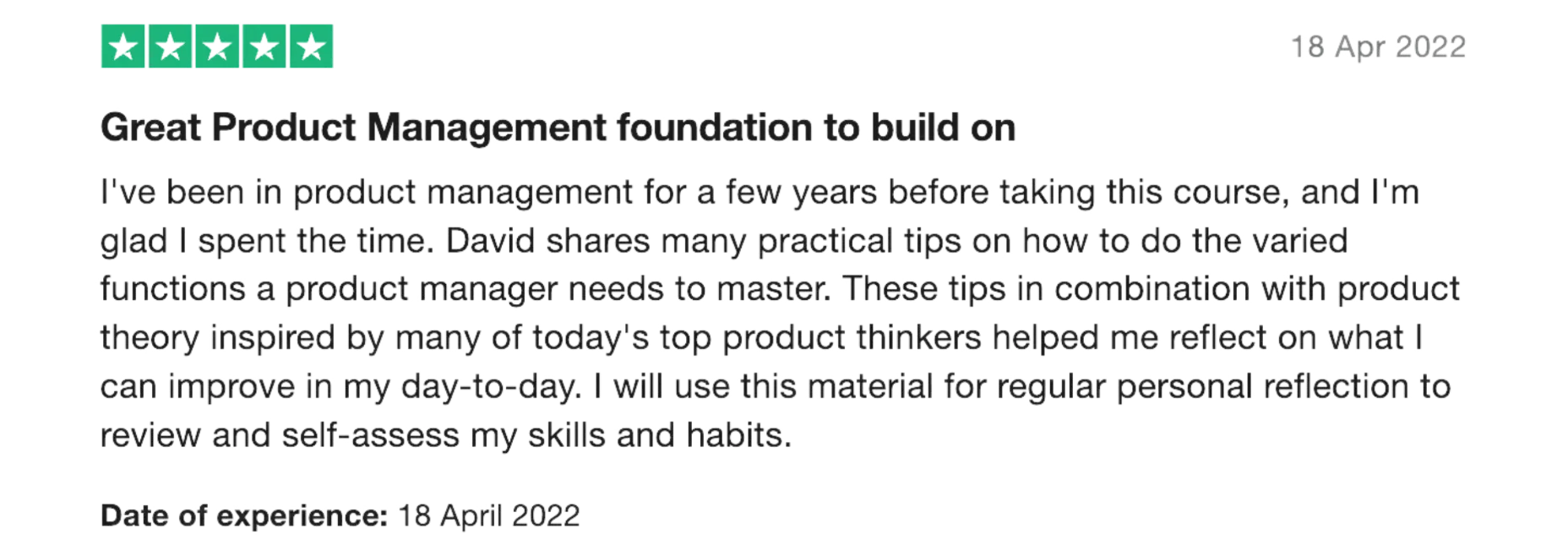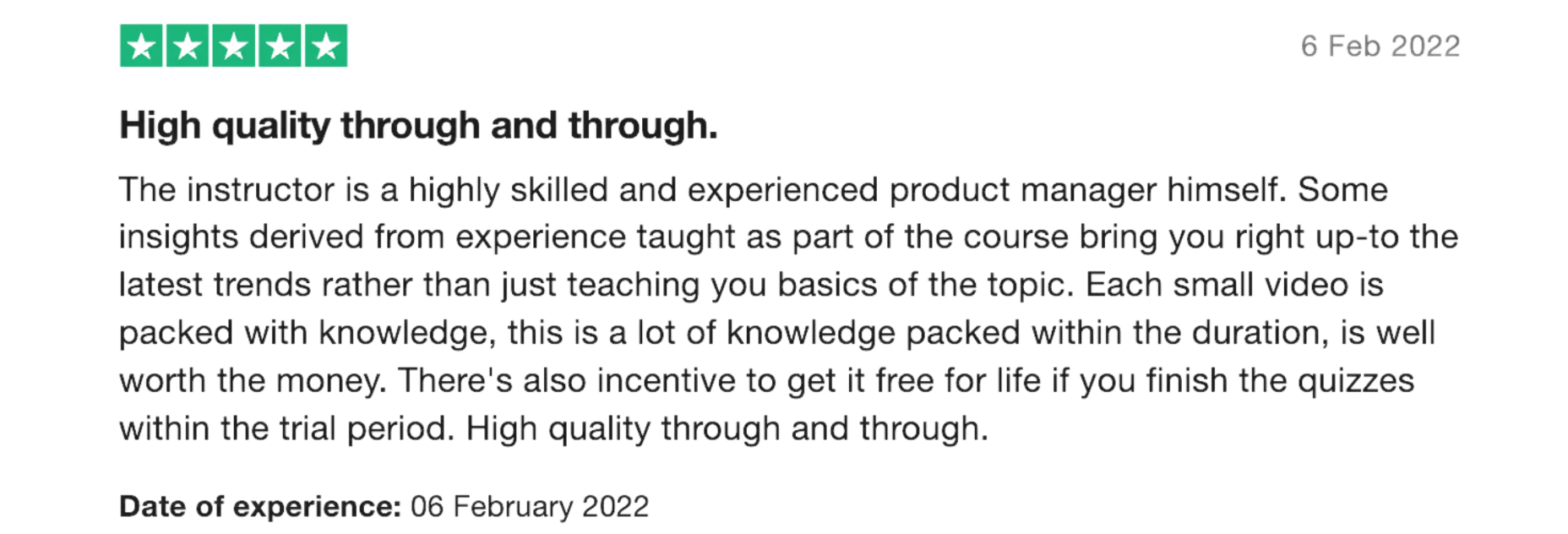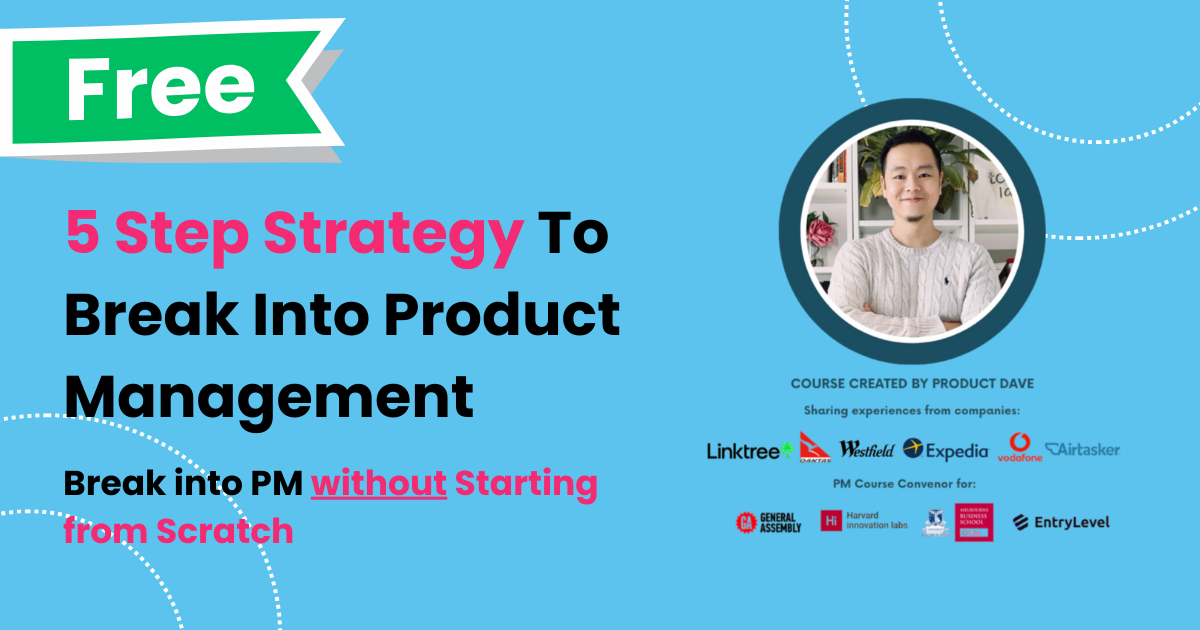Anyone Can Be a
Product Manager (with AI)
I will help you find a fulfilling career in Product Management in 4 Weeks & without wasting thousands for certificates that hiring managers ignore
See Where Our Students Work Today:












Why You Should Learn Product Management?
Let's be real, you are here because you're know there is a ceiling in your job - you want to find a role that scales as you grow your career.
With AI, ANYONE can be a "Product Manager" without the official title; build great products and get the pay increase you deserve.
Product Management is one of those jobs that will be in demand roles of the next decade. Linkedin statistics show that PM roles are expected to grow at 29% YoY globally! (Even during the economic down turn)
With starting salaries ranging from $120K to $180K, and a ceiling of $500K to $1M in most big tech companies. Product Management is a rewarding role that brings a tremendous amount of business value.
Product Management is a must have skill in order to progress into the highest levels of a technology company.
Find Your Product Journey
To become a great Product Manager, it takes 5 Hops mixed with self-paced learning, coaching and practice.

A Bundle of 3 Courses To Cover All Aspect of Your Journey:
Course #1: Learn the Core Skills of a Professional PM in 4 Weeks with AI
Designed to fast-track your Product Management journey with access to with 17+ practical, no-fluff courses, insider frameworks, and real examples from a Product Leader who’s done the job—not just talked about it.
Tap into 18+ Years of experience instantly, saving your years of going down the wrong track. Learn exactly what hiring managers look for, gain confidence with real-world tools, and skip the noise with clear, actionable training designed for career transitioners.
You'll also Get Private PA community events with Fireside chats with Dave and his network of PM Leaders.
Who's this for? Unofficial PMs, Engineers, Designers, Project Managers or Builders in their PM Transition Journey and want to save time learning from a trusted source.
Access NowTopics covered in this course
Course #1: 5-Step Strategy To Break Into Product Management
Kickstart your transition into Product Management with our Breaking Into PM Course, designed to help you move from curious to confident—without starting from scratch.
You’ll learn a 5-step strategy that guides your journey step-by-step, gain real PM experience without the title, and build proof of work that gets noticed by hiring managers. No guesswork.
What makes this different?
Instead of random job applications, you’ll follow a blueprint that actually works. Track your progress, connect with others, and build a portfolio that speaks louder than any certificate.
Who's this for? People 1 - 3 Months in their exploreration journey, or anyone who’s serious about landing their first PM role but doesn’t know where to start.
Access NowTopics covered in this course
Course #3: Get Noticed and Smash Your Interviews with Career Course
You’ve done the learning—now it’s time to land the job.
Join our Product Career Course, the final part of your PM journey, where we turn your preparation into action. Craft a resume that gets callbacks, build a job search strategy that actually works, and practice interviews with confidence.
Get real feedback, build a personal brand, and set up your own job search support group—so you’re never doing this alone.
Designed for Aspiring PMs who are actively applying, mid-interview, or feeling stuck and need clarity, momentum, and a proven system to land their first PM job.
Who's this for? People 6 - 12 months in, already learnt the theory and wants to build something tangible to practice their skills.
Access NowTopics Covered in this Course
Get Lifetime Access to All 3 Courses:
Whether you’re just exploring, actively applying, or trying to grow in your first PM role, this bundle gives you everything you need to make the leap—with lifetime access, updates, and community support:
1. Breaking Into Product Management
Learn the 5-stage strategy, build experience without the title, and start landing interviews. (RRP: $249)
2. Product Management Foundations
Master the mindset, skills, and tools every great PM needs—from product strategy to user research. (RRP: $249)
3. The Product Career Course
Write a resume that gets callbacks, build your network, and turn interviews into offers.(RRP: $249)
3 Courses: = $747 | Now $249
Also, if you're not happy with the courses you'll get
100% Life-Time Money Back Guarantee
(anytime in your career!)
Get Lifetime Access for just $249
8+ Years of Proven Success – Focused on Life-Long Impact
My Promise To You
This isn’t about certificates—it’s about real experience, practical skills, and a clear path into Product Management. You’ll get hands-on learning, insider strategies, and a supportive network. If you put in the effort and don’t see value, you get your money back—no questions asked.

Real Life Examples
Anyone can talk theory but our courses show you how it's done - one step at a time.

No Fluff Policy
No fancy frameworks or fluffy theories. Just easy to understand concepts that work in real life.

Happiness Guarantee
Let our product do the talking. If you’re not happy with any courses you'll get a 100% refund.
Get all 3 Courses for $249 Lifetime Access
Break into Product Management and build your career—with Zero Monthly Fees and 100% Money Back Guarantee
For a limited time, get lifetime access to all of my flagship courses:
1. Breaking Into Product Management → Learn the 5-stage strategy, build experience without the title, and start landing interviews.
2. Product Management Foundations → Master the mindset, skills, and tools every great PM needs—from product strategy to user research.
3. The Product Career Course → Write a resume that gets callbacks, build your network, and turn interviews into offers.
Whether you’re just exploring, actively applying, or trying to grow in your first PM role, this bundle gives you everything you need to make the leap—with lifetime access, updates, and community support. No recurring fees. No gatekeeping. Just the roadmap, skills, and support you’ve been looking for.
Get Lifetime Access for just $249
Not Ready to Get the Full Course Yet?
Start with our Breaking Into PM Course for FREE
You'll get the 5 Step guide to break into Product Management with clarity and confidence.
What You’ll Get:
- A 5-Stage Breaking Into PM Course for 100% FREE (the FULL Course, Not a Sample)
- Career Stage Assessment to find out where you are (Explorer, Builder, etc.)
- A Roadblock Buster to help you diagnose what’s holding you back
- A PM-style Progress Tracker to help you prioritise like a real product manager
- A guided walkthrough to stay focused and accountable
No Email, No fluff. Just a practical course to help you make real progress — fast.
Access Now for FREEConnect with Dave
© 2025 Product Academy - All rights reserved

